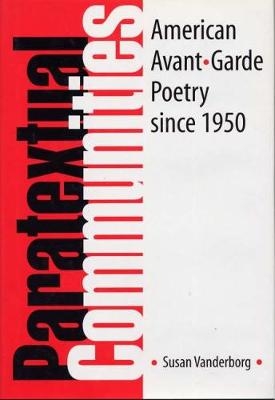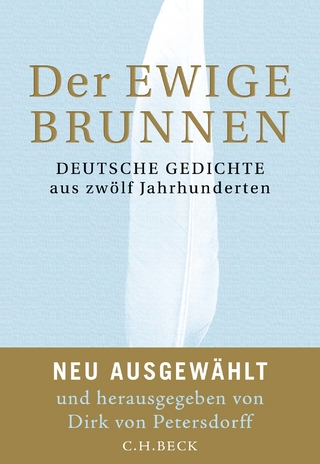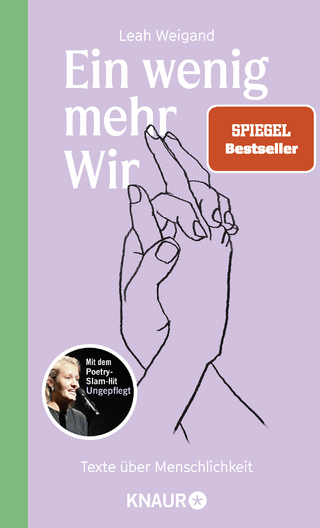
Paratextual Communities
American Avant-Garde Poetry since 1950
Seiten
2001
Southern Illinois University Press (Verlag)
978-0-8093-2323-4 (ISBN)
Southern Illinois University Press (Verlag)
978-0-8093-2323-4 (ISBN)
- Titel z.Zt. nicht lieferbar
- Versandkostenfrei innerhalb Deutschlands
- Auch auf Rechnung
- Verfügbarkeit in der Filiale vor Ort prüfen
- Artikel merken
In this study, Susan Vanderborg reconfigures the relation between primary and secondary texts in three generations of American avant-garde poets. She also offers an introduction to the pleasures, the complexities, and the provocations of the post-modern avant-garde poem.
Susan Vanderborg examines the role of paratexts - notes, prefaces, marginalia, and source documents - in shaping the reading communities for American experimental poetry published since 1950. Since 1950, Vanderborg notes, American avant-garde poetry has been dominated by two seemingly contradictory impulses: a disruption of language as transparent communication and a need to contextualize the poets' word games for readers. For many authors, the solution has been the creation of a split text - a difficult, elliptical, disjunctive poetry accompanied by more accessible paratexts: creatively arranged essays, notes, source histories, and other references that serve as necessary complements to the poetry rather than as secondary commentary. Paratexts, which tend to be more colloquial and readable than the poetry, provide a forum in which to discuss issues of audience and community. Vanderborg examines both the innovations and the limitations of paratexts in redefining the poet's community, using the writing of six poets who represent different stages in the evolution of this form: Charles Olson, Jack Spicer, Susan Howe, Charles Bernstein, Lorenzo Thomas, and Johanna Drucker.
Susan Vanderborg examines the role of paratexts - notes, prefaces, marginalia, and source documents - in shaping the reading communities for American experimental poetry published since 1950. Since 1950, Vanderborg notes, American avant-garde poetry has been dominated by two seemingly contradictory impulses: a disruption of language as transparent communication and a need to contextualize the poets' word games for readers. For many authors, the solution has been the creation of a split text - a difficult, elliptical, disjunctive poetry accompanied by more accessible paratexts: creatively arranged essays, notes, source histories, and other references that serve as necessary complements to the poetry rather than as secondary commentary. Paratexts, which tend to be more colloquial and readable than the poetry, provide a forum in which to discuss issues of audience and community. Vanderborg examines both the innovations and the limitations of paratexts in redefining the poet's community, using the writing of six poets who represent different stages in the evolution of this form: Charles Olson, Jack Spicer, Susan Howe, Charles Bernstein, Lorenzo Thomas, and Johanna Drucker.
Susan Vanderborg is an assistant professor at the University of South Carolina, Columbia, specializing in twentieth-century American experimental poetry.
| Erscheint lt. Verlag | 31.12.2001 |
|---|---|
| Zusatzinfo | 16 |
| Verlagsort | Carbondale |
| Sprache | englisch |
| Maße | 152 x 229 mm |
| Themenwelt | Literatur ► Lyrik / Dramatik ► Lyrik / Gedichte |
| Geisteswissenschaften ► Sprach- / Literaturwissenschaft ► Anglistik / Amerikanistik | |
| Geisteswissenschaften ► Sprach- / Literaturwissenschaft ► Literaturwissenschaft | |
| ISBN-10 | 0-8093-2323-0 / 0809323230 |
| ISBN-13 | 978-0-8093-2323-4 / 9780809323234 |
| Zustand | Neuware |
| Haben Sie eine Frage zum Produkt? |
Mehr entdecken
aus dem Bereich
aus dem Bereich
Deutsche Gedichte aus zwölf Jahrhunderten
Buch | Hardcover (2023)
C.H.Beck (Verlag)
28,00 €
Text, Übersetzung, Melodien, Kommentar
Buch | Softcover (2024)
De Gruyter (Verlag)
24,95 €


